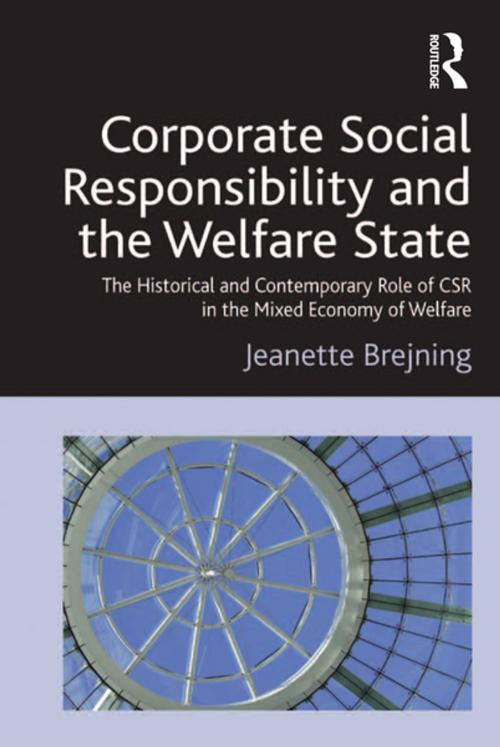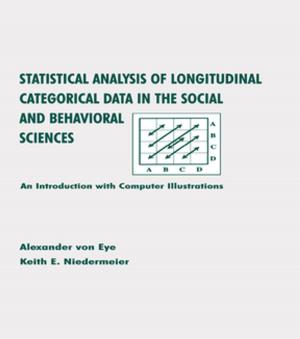Corporate Social Responsibility and the Welfare State
The Historical and Contemporary Role of CSR in the Mixed Economy of Welfare
Business & Finance, Business Reference, Business Ethics| Author: | Jeanette Brejning | ISBN: | 9781317159360 |
| Publisher: | Taylor and Francis | Publication: | May 13, 2016 |
| Imprint: | Routledge | Language: | English |
| Author: | Jeanette Brejning |
| ISBN: | 9781317159360 |
| Publisher: | Taylor and Francis |
| Publication: | May 13, 2016 |
| Imprint: | Routledge |
| Language: | English |
Over the past four decades many European welfare states have seen an increasing involvement of the commercial sector in their mixed economies of welfare. One aspect of this development that has yet to be fully understood in social policy analysis is the engagement of businesses to address social problems, such as social exclusion, through activities labelled as 'corporate social responsibility' ('CSR'). Although CSR has gained increasing currency on both national and international policy agendas since the 1990s, it remains a topic which is predominantly researched in business schools and from a business perspective. This book aims to redress this imbalance by focusing on the social aspect of CSR. Based on interviews with a wide spectrum of people who work with CSR professionally in England, Denmark and in the EU Commission, the book argues that when CSR is linked to social exclusion it is a way of renegotiating responsibilities in mixed economies of welfare. The book also offers a comprehensive historical understanding of CSR as it traces the emergence and development of CSR in West European welfare economies as diverse as England, Denmark, Sweden, Norway, Germany and France. By situating CSR within the conceptual framework of the mixed economy of welfare and using Historical Institutionalism as a theoretical perspective to explore and explain the relationship between the welfare state and CSR, this book makes an innovative contribution to critical debates in comparative social policy.
Over the past four decades many European welfare states have seen an increasing involvement of the commercial sector in their mixed economies of welfare. One aspect of this development that has yet to be fully understood in social policy analysis is the engagement of businesses to address social problems, such as social exclusion, through activities labelled as 'corporate social responsibility' ('CSR'). Although CSR has gained increasing currency on both national and international policy agendas since the 1990s, it remains a topic which is predominantly researched in business schools and from a business perspective. This book aims to redress this imbalance by focusing on the social aspect of CSR. Based on interviews with a wide spectrum of people who work with CSR professionally in England, Denmark and in the EU Commission, the book argues that when CSR is linked to social exclusion it is a way of renegotiating responsibilities in mixed economies of welfare. The book also offers a comprehensive historical understanding of CSR as it traces the emergence and development of CSR in West European welfare economies as diverse as England, Denmark, Sweden, Norway, Germany and France. By situating CSR within the conceptual framework of the mixed economy of welfare and using Historical Institutionalism as a theoretical perspective to explore and explain the relationship between the welfare state and CSR, this book makes an innovative contribution to critical debates in comparative social policy.















